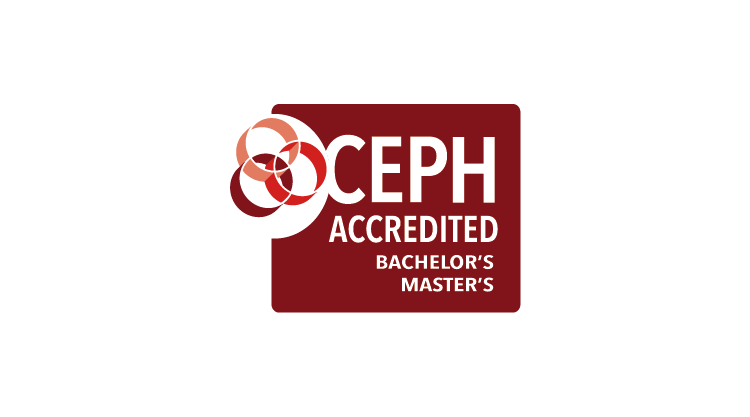Master of Health Administration
Earn Your MHA and Advance Your Career
The Master of Health Administration (MHA) program at East Tennessee State University will prepare you for a leadership position in health care administration.
You will learn marketable leadership and communication skills to prepare you to work in places such as hospitals, long-term care facilities, nonprofit organizations, and more.
You'll develop competencies in the four pillars of health administration: Finance, Quality, Policy and Regulation, and People and Partnerships. These competencies are woven into each course, so you'll be prepared to drive improvement in the health care system.
The thriving health care sector of our region is a great place to pursue your MHA. You'll be prepared to meet the needs of our region and beyond.

100% Job Placement Rate of Past Graduating Classes
No GRE Required for Admission
Fall or Spring Start Dates
See How Earning Your MHA Can Further Your Career
Hear from recent alumni who pursued the MHA at ETSU.
My options are endless. I can go and work anywhere or do anything with this degree.
MHA Tracks
The Master of Health Administration at ETSU offers two tracks to suit student needs:
- Executive track – Allows students with health care background to leverage managerial experience to accelerate degree completion.
- Standard track – Made for students who do not have a background in health care but who have completed an undergraduate degree in any field of study.
Both tracks are available on-ground and fully online so you can pursue your degree without interrupting your job.
Whether you choose to pursue your degree in person or online, you’ll be taught by the same expert faculty.

Job Outlook
- $117,960 annual median pay in 2024
- 62,100 new jobs per year
- 23% employment growth between 2024-34 (much faster than average)
According to the U.S. Bureau of Labor Statistics, employment of medical and health services managers is projected to grow 23 percent from 2024 to 2034, much faster than the average for all occupations.

The MHA is accredited through the Council on Education in Public Health (CEPH).
Take Your Next Step
Learn More about the MHA at ETSU
-
Admission Requirements
Admission to the Master of Health Administration program is based upon scholarship, letters of recommendation, and evidence of potential for success in a graduate program, including a minimum undergraduate grade point average (GPA) of 2.75 for domestic applicants and 3.0 for international applicants. Application materials include transcripts, letters of recommendation from academic or professional references, a Statement of Purpose, and a résumé/CV.
Applicants to this program are required to use the online Schools of Public Health Application Service (SOPHAS), which can be accessed at sophas.org.
The Graduate Record Examination (GRE) and the Graduate Management Admission Test (GMAT) are not required for admission. Applicants with a GPA of less than 3.20 are encouraged to submit GRE or GMAT scores with their application.
For additional information, please contact PublicHealth@etsu.edu.
-
MHA Mission, Vision, and Values Statements
Mission:
“The ETSU Master of Health Administration equips early and mid-careerists to advance population health in Appalachia and beyond. Our faculty, composed of seasoned administrators and academicians, prioritizes application and interprofessional training to provide an impactful education. Our curriculum prepares innovative leaders by developing their competency in four domains of health administration: Finance & Delivery, Quality, Policy & Regulation, and People & Partnerships. Each domain incorporates principles of Leadership, Communication, Problem-Solving, and Professionalism in its coursework to ensure that our graduates are fully capable of driving population health improvement. Students apply their knowledge through practical experiences and collaborative arrangements with healthcare organizations in their community.”
Vision:
“ETSU MHA aims to become nationally recognized for attracting and building effective leaders in an ever-changing healthcare environment.”
Values:
- Dedication: Commit to the production of optimal health outcomes.
- Professionalism: Devoted to competency while fostering honesty and respect.
- Integrity: Adhere to the highest ethical principles.
- Teamwork: Promote collaboration through equitable participation.
- Innovation: Strive for creative advancements in healthcare settings.
- Excellence: Focus on world-class protocols.
- Humility: Teachable and ever learning.
Competencies
ETSU’s Master of Health Administration (MHA) program prepares innovative leaders by developing student competency in four pillars of health administration: Finance and Delivery, Quality, Policy and Regulation, and People and Partnerships. Each of these pillars incorporates methods of leadership, communication, problem-solving, and professionalism into the core of their coursework to ensure graduates are resilient leaders fully capable of driving health improvements.
Finance & Delivery
- Discuss main components and issues of the organization, financing, and delivery of health services in the U.S.
- Compare the organization, structure, and function of health care, public health, and regulatory systems across national and international settings.
- Explain principles and tools of budget and resource management.
- Apply key principles of accounting and financial management in health services organizations.
- Apply leadership and/or management principles to address a relevant issue.
- Apply principles of strategic planning and marketing in health services organizations.
Quality
- Apply a systems thinking tool to visually represent a health issue in a format other than standardized narrative.
- Select methods to evaluate health programs.
- Select data collection methods appropriate for a given public health context.
- Analyze data using biostatistics, informatics, computer-based programming, and software, as appropriate.
- Utilize analytical methods and informatics resources to investigate health and health services.
- Interpret results of data analysis for public health research, policy, or practice.
- Apply quality and performance improvement concepts and tools to address organizational performance.
Policy & Regulation
- Discuss the policy-making process, including the roles of ethics and evidence.
- Apply legal and ethical principles to issues of health services management and policy analysis.
- Apply principles of human resources management in health services organizations.
- Design a population-based policy, program, project, or intervention.
- Demonstrate written and oral skills for communicating health management & policy issues with different audiences.
People & Partnerships
- Demonstrate professionalism, transparency, and a commitment to self-development and growth.
- Integrate perspectives from other sectors and/or professions to promote and advance population health.
- Propose strategies to identify stakeholders and build coalitions and partnerships for influencing health outcomes.
- Apply negotiation and mediation skills to address organizational or community challenges.
- Leverage health data and leadership skills to inform/facilitate organizational or community change.
COMPETENCY ATTAINMENT LEVELS
These competencies are covered and assessed in multiple classes throughout the MHA program. For each competency covered in a class, faculty have assigned a target attainment level that depends on the context and the extent to which each competency is covered in that particular course. You can find the target levels for each competency in your syllabi.
1 - Novice (Basic Knowledge)
You possess a foundational understanding of essential concepts and techniques in your field.
- Focus on learning.
2 - Beginner (Limited Experience)
You have initial knowledge but still require guidance when applying these skills.
Focus on developing through coursework.
- You can discuss relevant terminology, concepts, principles, and issues.
- You utilize a variety of reference materials related to your assignments.
3 - Proficient (Practical Application)
You can complete coursework related to this competency independently, though occasional assistance from instructors or textbooks may be necessary.
Focus on applying and enhancing your skills.
- You have successfully applied your knowledge in assignments and projects with minimal guidance.
- You understand and can discuss the application and implications of changes to processes, policies, and procedures related to your assignment.
4 - Advanced (Applied Theory)
You can perform tasks related to this competency independently and are recognized for your ability to tackle complex assignments.
Focus on broader academic issues.
- You consistently provide practical insights that demonstrate an ability to succeed in the competency area.
- You are capable of clarifying complex concepts in related assignments.
- You engage in self-directed study that addresses higher-level topics related to the assignments you are involved with.
5 - Expert (Recognized Authority)
You are regarded as an authority in your area of study, capable of providing expert guidance and troubleshooting related to relevant competency.
Focus on strategic academic issues.
- You demonstrate excellence in applying your skills across multiple concepts.
- You are the “go-to” person for questions related to the competency.
- You create new applications for and/or lead the development of reference and resource materials for this competency.
- You can articulate and explain complex concepts and trends effectively in written work, enhancing understanding for your peers.
-
FAQs
What is the primary focus of this program?
The ETSU MHA program focuses on preparing graduates for leadership positions in health care administration. Students who complete an MHA indicate to potential employers that they have obtained a high level of knowledge related to the health services management environment.
What is the demand for this degree?The U.S. Bureau of Labor Statistics predicts that demand for health services is on an upward trajectory, growing much faster than average compared to other industries.
What is the tuition rate for this program?Learn more about paying for graduate school here.
Can I take all of my courses online, and when/where do classes meet?All of our MHA courses can be completed 100% online, and select courses are offered at our Johnson City campus. More information on our online program offerings can be found here.
How long will it take for me to graduate from this program, and what is the difference between the Standard Track and the Executive Track MHA?- The typical timeline to complete the MHA on a full-time basis is four semesters. However, the program is flexible and can be completed on a part-time basis, with a six-year time limit.
- The Standard Track program consists of 51-54 credit hours. Our Executive Track is 45-48 credit hours and is designed for students who have three or more years of experience in a supervisory or managerial role in health administration.
Does the MHA program require a specific undergraduate degree? Is there a thesis involved with either track?
Our MHA program does not require a specific undergraduate degree for consideration and does not require a thesis as part of the program curriculum. The program offers students the opportunity to complete a capstone course focusing on integrating health management and administrative techniques into real-world settings.
How often are applicants accepted into this program, and how long should I expect to wait for an admissions decision? Is there a minimum GRE score required for this program?The GRE is not required to be considered for the MHA. Our MHA program admits students to start in either the fall or spring semester each academic year, and application deadlines can be found through our application on SOPHAS.
Can I transfer into the MHA from another ETSU graduate program? How about from outside of ETSU?Our MHA program does accept transfer credits from CEPH- and/or CAHME-accredited programs. More information about our transfer policy is available here.
Are there additional requirements for applicants who are not United States citizens or permanent residents?ETSU international admission requirements may be found here.
If you have any questions about this program, we’re here to help! Please reach out to our Program Coordinator at publichealth@etsu.edu or schedule an appointment.

Program Director
Clinical Associate Professor
youngbloodr@etsu.edu
+1423-439-4115
142 Lamb Hall
Box 70623, Johnson City, TN 37615

Graduate Program Advisor
College of Public Health
huntjr1@etsu.edu
+1423-439-6135
Lamb Hall 257
 Stout Drive Road Closure
Stout Drive Road Closure 
